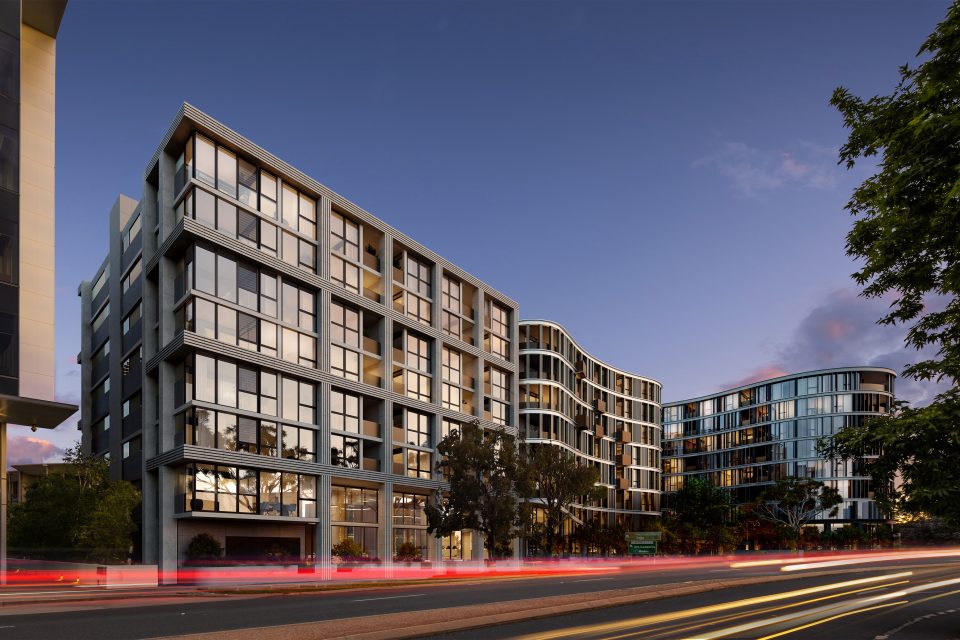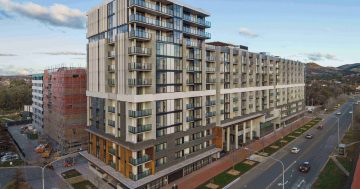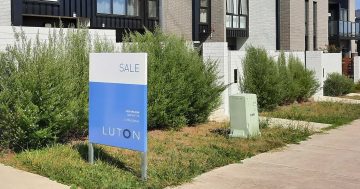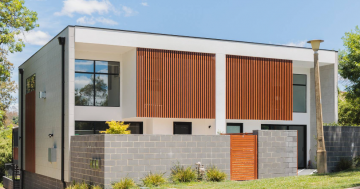
Canberra’s property market is underperforming despite having all the markers of a strong economy and a notorious undersupply of housing – and these might be prime investment conditions. Photo: Geocon.
As confidence returns to a rattled Australian housing market, Canberra has baffled experts with a market that’s not doing what it should be – and it could present a significant opportunity for savvy investors, according to a leading Australian property economist.
My Housing Market chief economist Dr Andrew J Wilson said while most capital cities had recovered from 2022’s brutal interest rate increases, Canberra was a clear underperformer, particularly through the latter part of 2023.
“We often see a synergy in the Sydney and Canberra markets, but last year we saw that disengage a bit, and in the latter part of last year as Sydney continued to grow steadily, Canberra started to move sideways,” he said.
“After a lengthy period of dovetailing, particularly in the latter part of 2023, Canberra became a clear underperformer.”
Based on the “underlying drivers” behind markets, however, this anomalous underperformance didn’t make sense and was likely to be short-lived.
“It’s counterintuitive that the Canberra market moved sideways because the underlying drivers are still very strong. When you look at the factors behind a strong economic profile – high participation rate, low unemployment, wage growth and average weekly earnings – it’s head and shoulders above other capitals,” he said.
It presented a rare opportunity in a typically top-performing market.
“The fact is that people have to live somewhere, and this is a strong and affluent economy that, despite strong unit development over the past four to five years to alleviate the problem, is notoriously undersupplied,” Dr Wilson said.
“It has the highest wages and strongest economy in terms of the labour market, and a substantial base of the public sector to support it.”
Dr Wilson said a “crisis of confidence” was likely driving the current perplexing market. He pointed to a number of ACT Government policies that were introduced in the second half of last year, and the federal government’s intent to cap the number of overseas students arriving in Australia at 270,000 in 2025.
“There’s no doubt this will affect the strong education market in Canberra, and I think as a result of this Canberra has scared itself into a less-than-positive market,” he said.



On the ground, Geocon Director of Sales and Strategic Partnerships Simon Chester said there were early indicators that Canberra apartments were a solid investment, and pointed to one case study in particular.
“Look at WOVA, where we’ve seen a good number of the 802 units hit the rental market at one time. We control a hundred of those, and 85 per cent of them are already tenanted,” he said.
“November, December and January are key entry runs in the Canberra market – it’s when people are finding out about their APS placements, uni placements, ADFA, RMC etc – they’re starting their new career or studies in January, and getting their accommodation sorted out from November.
“To see 85 per cent of our apartments filled in a quieter period, and just 15 left coming into the busy period, is very pleasing.”
Dr Wilson said he would be watching the Canberra market with keen interest as it entered the strongest time of year – the spring selling market.
Investors, particularly those from interstate markets, should do the same.
“A lot of investors coming into the Canberra market are Sydneysiders who come for the lower price point and higher yields,” he said.
“No doubt it’s a positive market in terms of underlying drivers. It’s gotten a little spooked over the last 12 months, but we’ve had some positive news on inflation rates, with a real shift downwards in July both in headline and underlying inflation. It’s only one month, but that would make the RBA feel a little better, and that bodes well for interest rates.
“I’m not saying there will be cuts – I don’t think that’s on the near horizon. But I think it’s the kind of positive short-term indicator Canberra needs to see in order to rally.”
Disclaimer: The Grande (“the Development”) Illustrations and images are the designer’s impressions only and are subject to change as required by the Developer and by law. No guarantee or warranty is given that the images herein will accurately depict what is constructed. Any view lines shown are indicative only as of the date of publication. Actual views from the Development may vary on completion from that shown and may be impacted by building design changes and current and future developments. Purchasers should rely on their own enquiries before entering into any contract for sale. See website for details. Licence no 18401809 V4 January 2024.





















